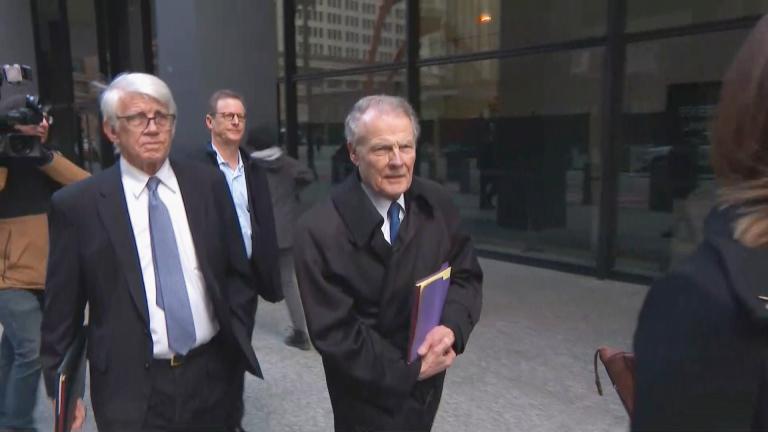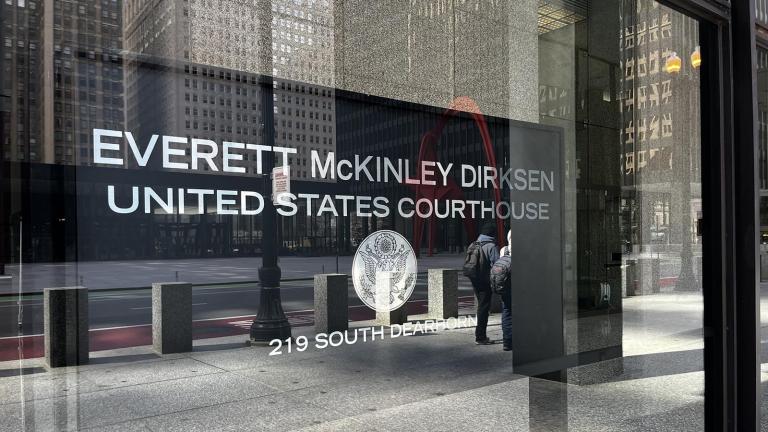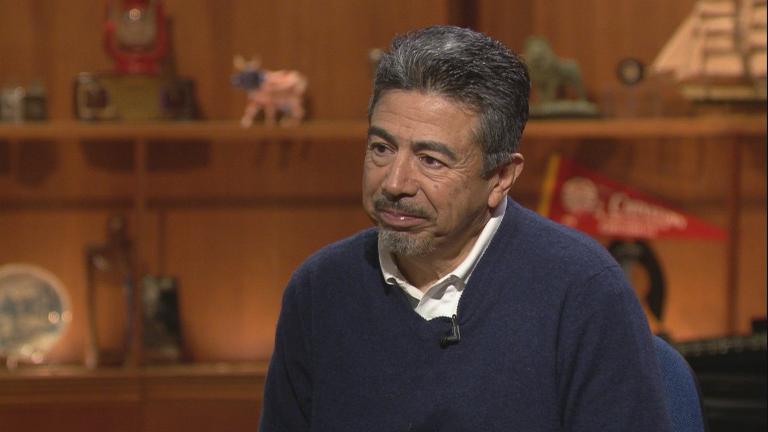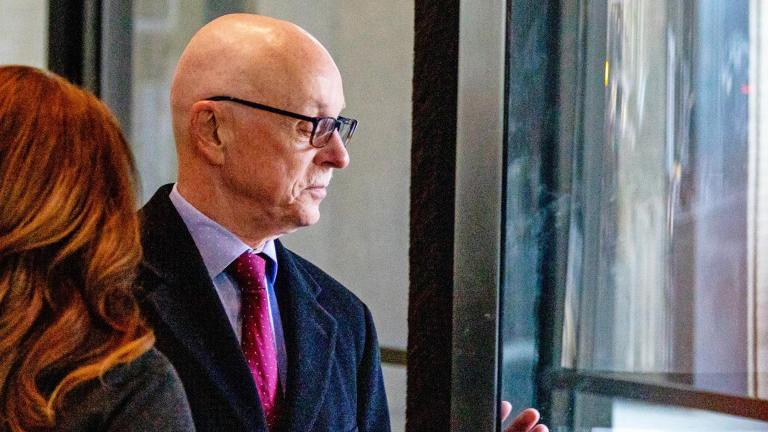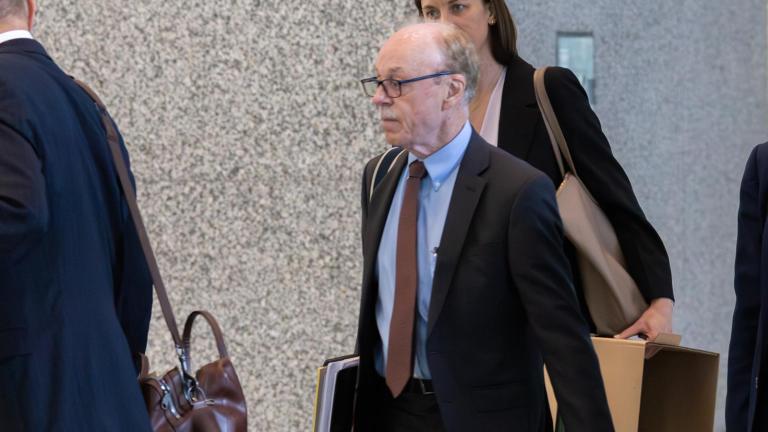Did the longtime Speaker of the Illinois House, Michael Madigan, engage in conduct “unbecoming” of a legislator such that it is a “breach of public trust”?
It’s up to six representatives – three Democrats and three Republicans – to answer that question, a feat they began to tackle Thursday as their rare, special House investigative committee held its first meeting in Springfield
Several Republicans, led by House Minority Leader Jim Durkin, filed a petition against Madigan on Sept. 2, instigating a process that has the potential to lead to his peers ousting Madigan from the House.
But that’s a tiered process, and first the special investigative committee has to determine whether there’s evidence to support the charge levied by Durkin against Madigan, whether “Representative Madigan engaged in conduct which is unbecoming to a legislator or which constitutes a breach of public trust, as detailed in the admissions by Commonwealth Edison in the Deferred Prosecution Agreement, including engaging in a bribery scheme, an extortion scheme, conspiracy to violate federal and state laws, among other misconduct and misuse of office.”
Madigan has not been indicted or accused of any legal wrongdoing, but he is labeled in a formal deal between federal prosecutors and electric utility ComEd as the “public official A” whom former ComEd executives spent nearly a decade trying to cozy up to via a bribery scheme. ComEd paid Madigan allies despite their doing little or no work, as the state-regulated monopoly got favorable laws passed by the General Assembly.
Chair of the special investigative committee, Rep. Emanuel “Chris” Welch, D-Westchester, promised he will lead the committee in a diligent and “expeditious” manner.
“This is a political process not a legal proceeding. We are not a court of law. As such, this committee is not bound by traditional rules of evidence, however we are bound to adhere to the rules of decorum,” Welch said.
But he signaled that the committee’s work will be on hold, until the committee receives guidance from the U.S. Attorney’s office, which has acknowledged its probe into government corruption.
All members of the committee voted that contacting the U.S. Attorney’s office should be the first step.
Republicans, however, say there’s no need to put the entire investigative process on hold.
On Thursday, the GOP’s committee members submitted a list of witnesses they want to voluntarily testify, including Madigan and several other figures tied to the scheme including Madigan’s longtime confidante, ComEd lobbyist Mike McClain and former ComEd CEO Anne Pramaggiore. They also want those same individuals to share relevant emails, tests, timesheets and billing documents with the committee.
Should those individuals not voluntarily participate, the investigative committee has subpoena power.
What’s unknown is whether the committee’s cooperation thus far will continue going forward.
It would take a majority vote – so, a bipartisan action – to issue a subpoena, including to Madigan.
It also requires a majority vote to decide whether there’s evidence to back up the charge enough to advance the process; the next step would be the formation of a 12-legislator committee focused on recommending appropriate discipline for Madigan. That recommendation would then be brought before the full chamber.
After the hearing, GOP legislators and Welch traded mild accusations of political posturing, with Welch hinting that GOP Reps. Grant Wehrli of Naperville and Deanne Mazzochi of Elmhurst were appointed to the panel because they’re in tight races for reelection, while Republicans say that in appointing Democratic Reps. Welch, Natalie Manley of Joliet and Elizabeth Hernandez of Cicero, Majority Leader Greg Harris picked Madigan loyalists instead of the Democrats who have publicly called for either Madigan’s resignation or for the Speaker to publicly answer questions about his involvement with ComEd’s scheme.
Ferreting out corruption in government should be bipartisan, Mazzochi said.
“This is a highly regulated public utility in the state of Illinois who has said yes, ‘we engaged in a conspiracy to bribe Speaker Madigan and his associates.’ I don’t care if you like Mike Madigan or think that he’s a terrible person, those are terribly damaging facts to have in the public record,” she said.
Madigan was not present at Thursday’s hearing, though Welch said Madigan’s attorney confirmed that the Speaker is aware of the charges.
The rules give Madigan the ability to participate in the entire hearing process, including to cross examine witnesses.
Follow Amanda Vinicky on Twitter: @AmandaVinicky

